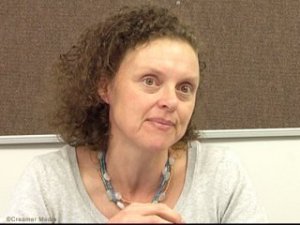While South Africans are concerned that a carbon tax could make South Africa less attractive to foreign investment and affect some business sectors negatively, a fear of the realisation of unintended consequences, such as a downturn in economic activity, is also prominent, as South Africa is only one of three countries in the world introducing a carbon tax.
These concerns were raised following Finance Minister Pravin Gordhan’s announcement in the yearly February Budget address that South Africa would introduce a carbon tax between 2015 and 2020.
University of the Witwatersrand professor of environmental law Tracy-Lynn Humby, however, notes that these are not imaginative responses to carbon tax, which she believes could hold positive future implications for South Africa.
“It should be celebrated that we are only one of three countries to introduce a carbon tax, as it will enable South Africa to change its business practices and encourage different types of future investment,” she states.
Humby acknowledges that there will be short-term losses and negative impacts following the introduction of a carbon tax. However, the alternative of avoiding a carbon tax will make South Africa more reliant on fossil fuels, rendering the country less resilient in adapting to inevitable future sustainability requirements.
“This phenomenon is a typical example of resilience thinking – an emergent way of thinking about environmental governance,” Humby points out, explaining that resilience thinking offers an alternative way of understanding the world and a new approach to managing resources.
The predominant focus of environmental governance is sustainable development, which is popularly interpreted as entailing the integration of the social, economic and environmental aspects of development, she adds.
The concept of resilience appears in South Africa’s National Climate Change White Paper, which advocates that South Africa build the climate resilience of the country. This should have a significant impact on how South Africans’ views environmental governance and which legislative tools are developed.
The country needs to pay attention to planetary boundaries and acknowledge that sustainability is integrated into social and ecological systems at various scales, which undergo a growth phase, a conservation phase, a release phase and a reorganisation phase, leading to the realisation that destruction is not always negative and that creative dysfunction exists, Humby states.
“Creative dysfunction promotes growth and future possibilities of sustainability. While carbon tax might create destruction in the short term, the long-term consequences could be far greater and prosperous for South Africa. ”
Lesueur vs Ethekwini
As a further example of the application of ‘resilience thinking’, Humby cites the decision of the Pietermaritzburg High Court in February, in the case of Le Sueur vs Ethekwini Municipality, in which the court recognized the mandate of local authorities to pass laws and regulations dealing with environmental planning that in turn affirm the protection of biodiversity and ecosystem services.
The case, required a ruling on whether cities and municipalities have a legal right to protect sensitive environments from private property developers.
This ruling also promotes feedback between municipalities and those within their jurisdiction regarding environmental decisions and governance, as they will be accountable for environmental implications.
The case was brought to light after the Ethekwini municipality launched the Durban Metropolitan Open-Space-System project. The project aims to enhance climate adaptation and to protect certain open spaces connected to biodiversity and the ecosystem services that those lands and ecologies provide for the City of Durban.
The project was meant to serve as an overlay for a town-planning scheme. However, as some pieces of land are not owned by government but by private individuals, these owners would face much stricter rules governing the development of their land with regard to the removal of native vegetation and excavation, among other development activities.
This scheme was challenged by one private owner on the basis that it was not constitutional and that municipalities did not have the power to regulate the environment, owing to the way in which the Constitution divides power between the national, provincial and local spheres of government.
The Pietermaritzburg High Court decided, however, that the municipality did have authority in terms of the Constitution to regulate the local environment, as municipal planning in the Constitution incorporates the idea of municipalities regulating local environments – a positive ruling for South Africa, says Humby.
“The ruling will enable municipalities to positively contribute towards the sustainability of their local environments and thereby enhance their resilience.”
Video Blurb
To watch a video in which Universty of the Witwatersrand professor of environmental law Tracy-Lynn Humby discusses resillience, carbon tax and the Lesueur vs Ethekwini judgement, scan the barcode with TagReader at (www.gettag.mobi) on your cellphone, or go to 'Vidoe Clips' on www.Polity.org.za
EMAIL THIS ARTICLE SAVE THIS ARTICLE
To subscribe email subscriptions@creamermedia.co.za or click here
To advertise email advertising@creamermedia.co.za or click here










